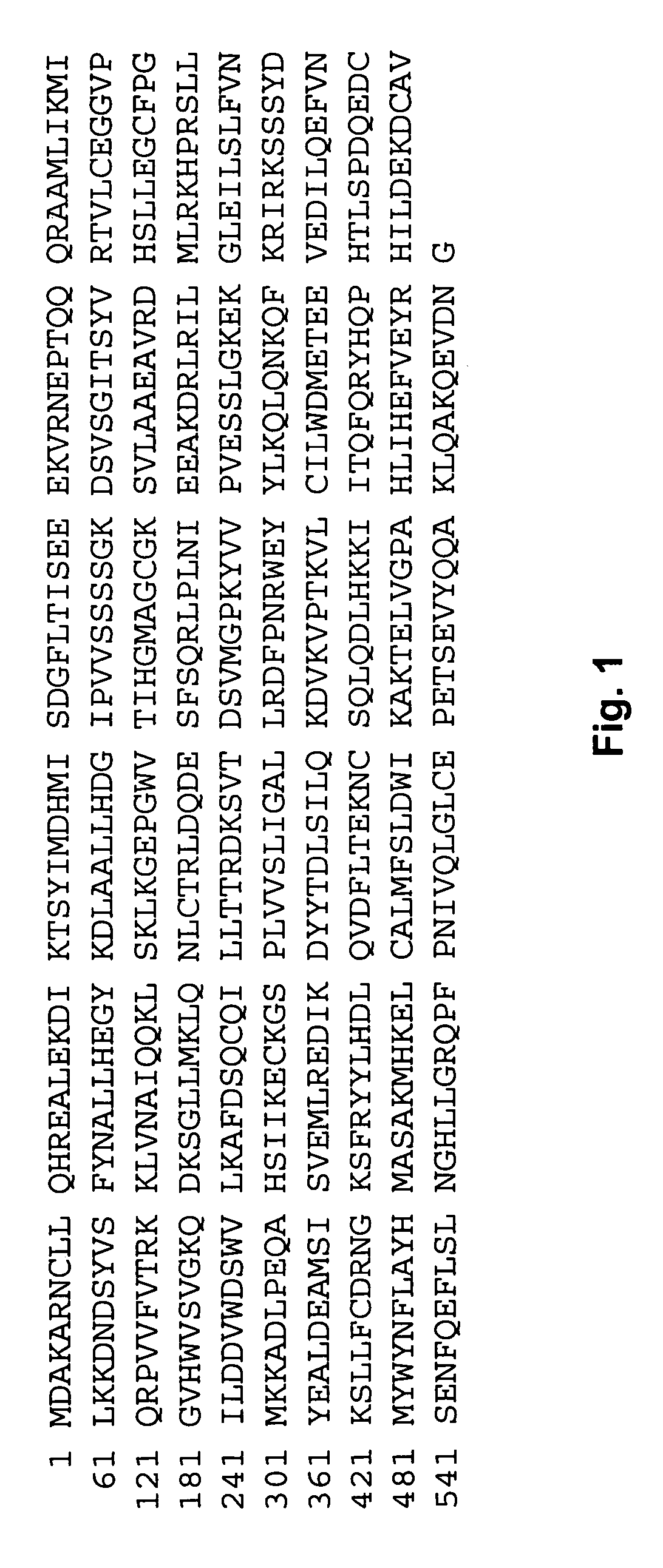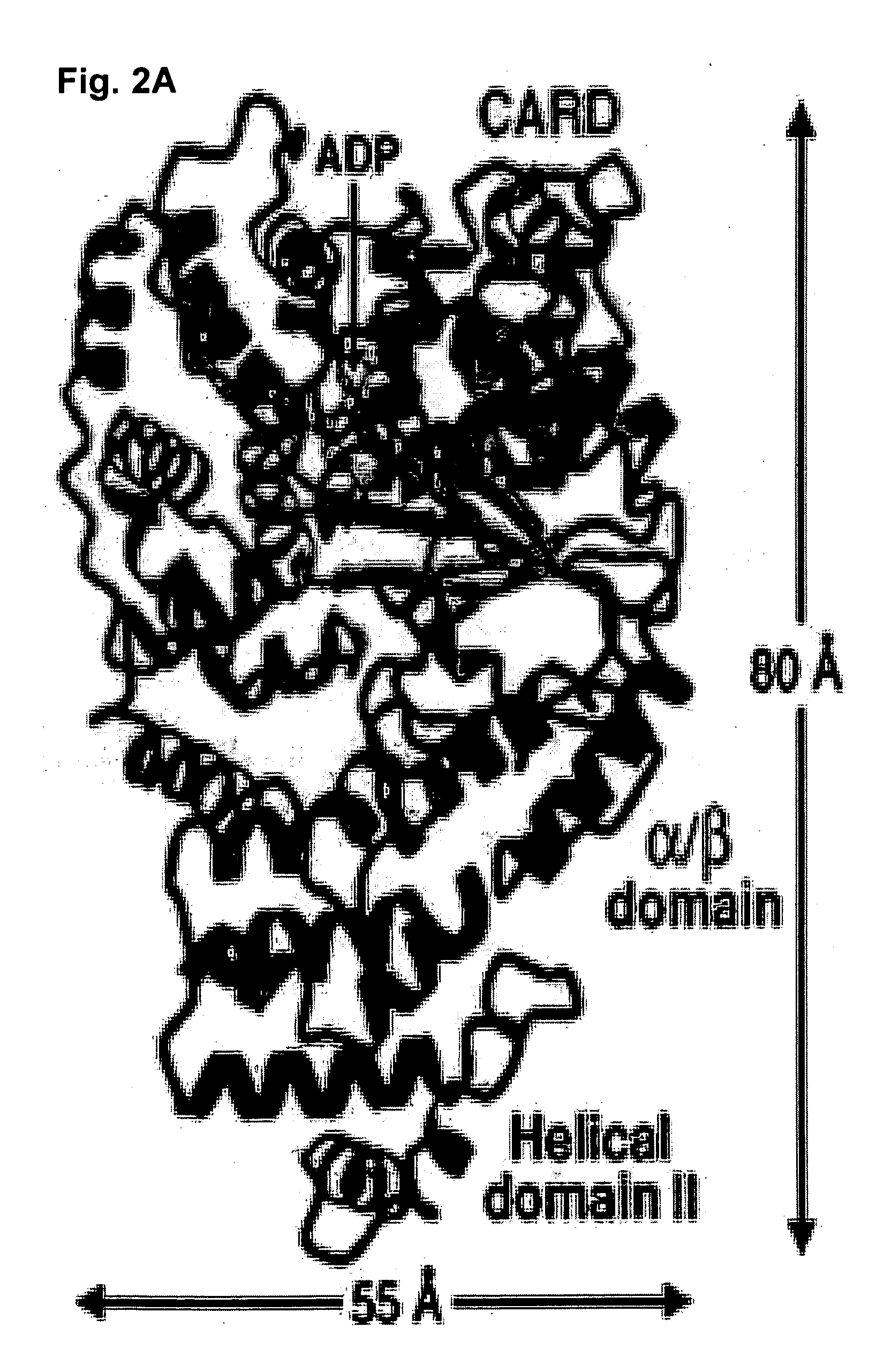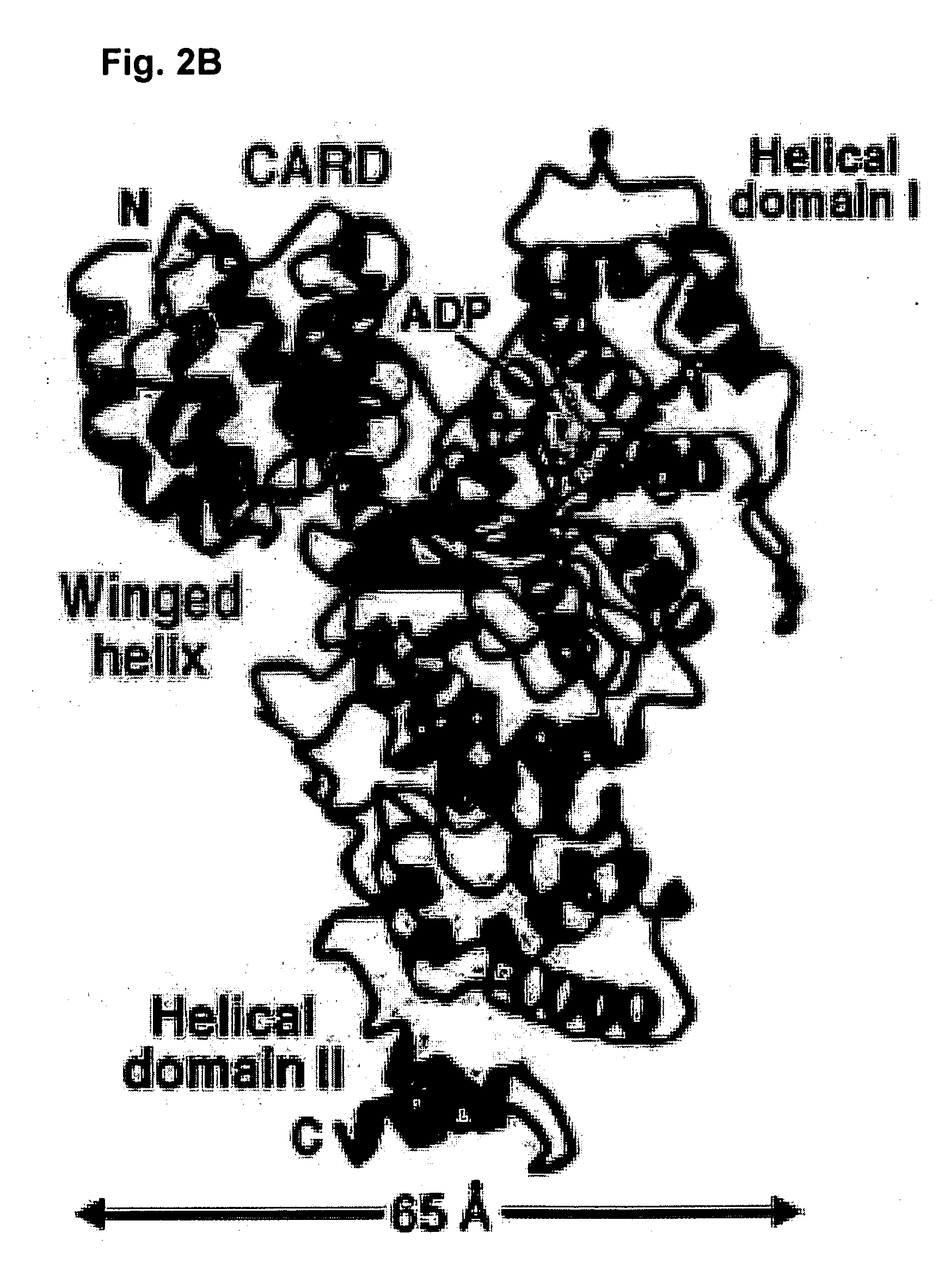Soluble, functional apoptotic protease-activating factor 1 fragments
- Summary
- Abstract
- Description
- Claims
- Application Information
AI Technical Summary
Benefits of technology
Problems solved by technology
Method used
Image
Examples
example 1
[0064] Preparation of Soluble Recombinant Apaf-1 Protein
[0065] Prior to the experiments described herein, there was no published protocol that allows bacterial expression and purification of a soluble recombinant Apaf-1 fragment longer than 200 amino acids. There was also no published protocol that allows the preparation of any soluble, stable, recombinant Apaf-1 fragment longer than 200 amino acids except that for the full-length Apaf-1 protein produced in baculovirus-infected insect cells. The full-length protein produced in baculovirus exhibited low yield and significant conformational heterogeneity, and its usefulness for many purposes is limited.
[0066] In the experiments described herein, several factors were discovered that enhance the expression of soluble Apaf-1 protein fragments in bacteria.
[0067] Length of Apaf-1 Protein Fragment
[0068] It was discovered that an Apaf-1 fragment having its carboxyl-terminal boundary between amino acids 550 and 650 of the native protein e...
example 2
[0075] Three-Dimensional Structure and Mechanism of Apaf-1
[0076] In this example, the 2.2-Angstrom three-dimensional structure of a functional fragment of Apaf-1 (residues 1-591) bound to adenosine diphosphate (ADP) is reported. This structure reveals, surprisingly, a closed conformation of Apaf-1. This structure provides a framework for understanding Apaf-1 function, apoptosome assembly, and caspase-9 activation. The information can also be used to decipher the general mechanisms of the NOD family of proteins.
[0077] The materials and methods used in this example are now described.
[0078] Protein Preparation
[0079] All constructs for protein expression were generated using a standard PCR-based cloning strategy, and the identity of individual clones was verified by double-stranded plasmid sequencing. A soluble Apaf-1 fragment (residues 1-591, sequence (SEQ ID NO: 1) shown in FIG. 1) was over-expressed in Escherichia coli strain BL21(DE3) using plasmid vector pET29 having the nucleo...
PUM
| Property | Measurement | Unit |
|---|---|---|
| Temperature | aaaaa | aaaaa |
| Molar density | aaaaa | aaaaa |
| Molar density | aaaaa | aaaaa |
Abstract
Description
Claims
Application Information
 Login to View More
Login to View More - R&D
- Intellectual Property
- Life Sciences
- Materials
- Tech Scout
- Unparalleled Data Quality
- Higher Quality Content
- 60% Fewer Hallucinations
Browse by: Latest US Patents, China's latest patents, Technical Efficacy Thesaurus, Application Domain, Technology Topic, Popular Technical Reports.
© 2025 PatSnap. All rights reserved.Legal|Privacy policy|Modern Slavery Act Transparency Statement|Sitemap|About US| Contact US: help@patsnap.com



